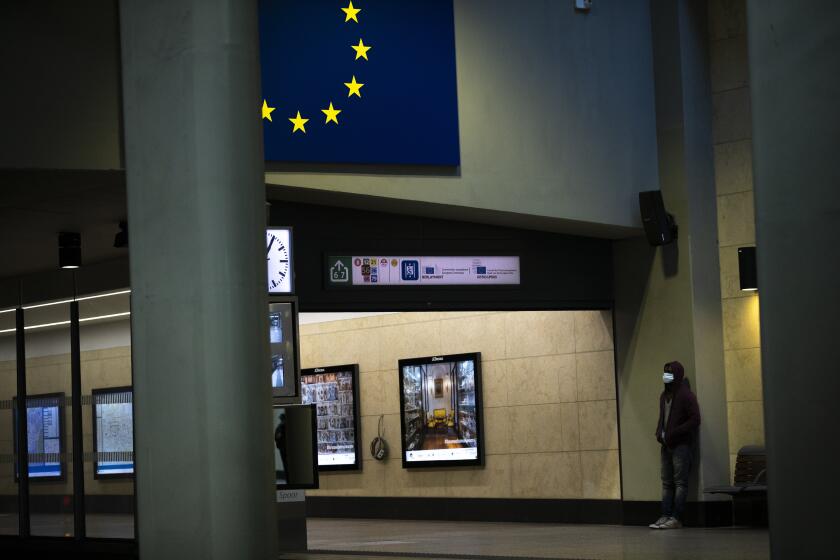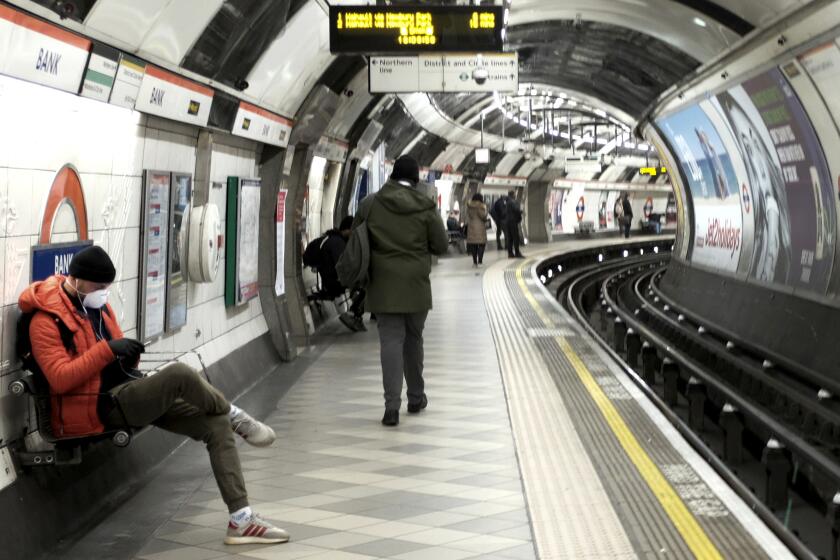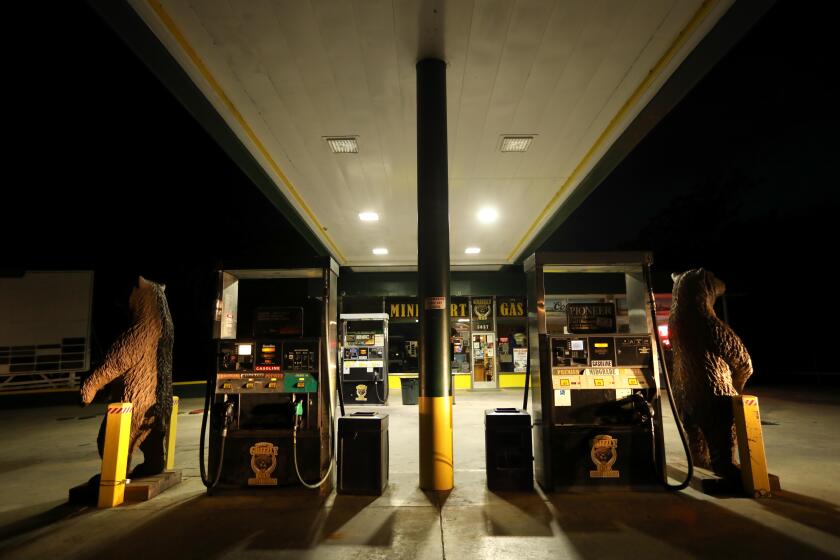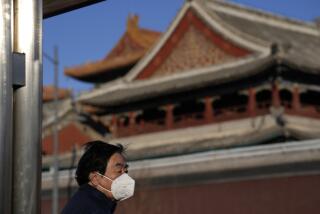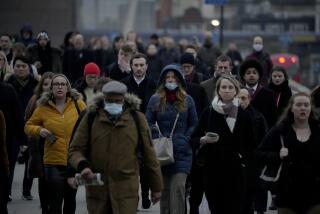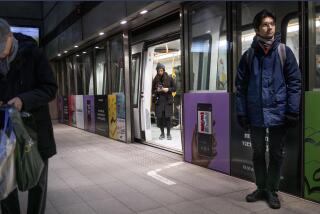European countries cautiously reopen, but rules and restrictions apply
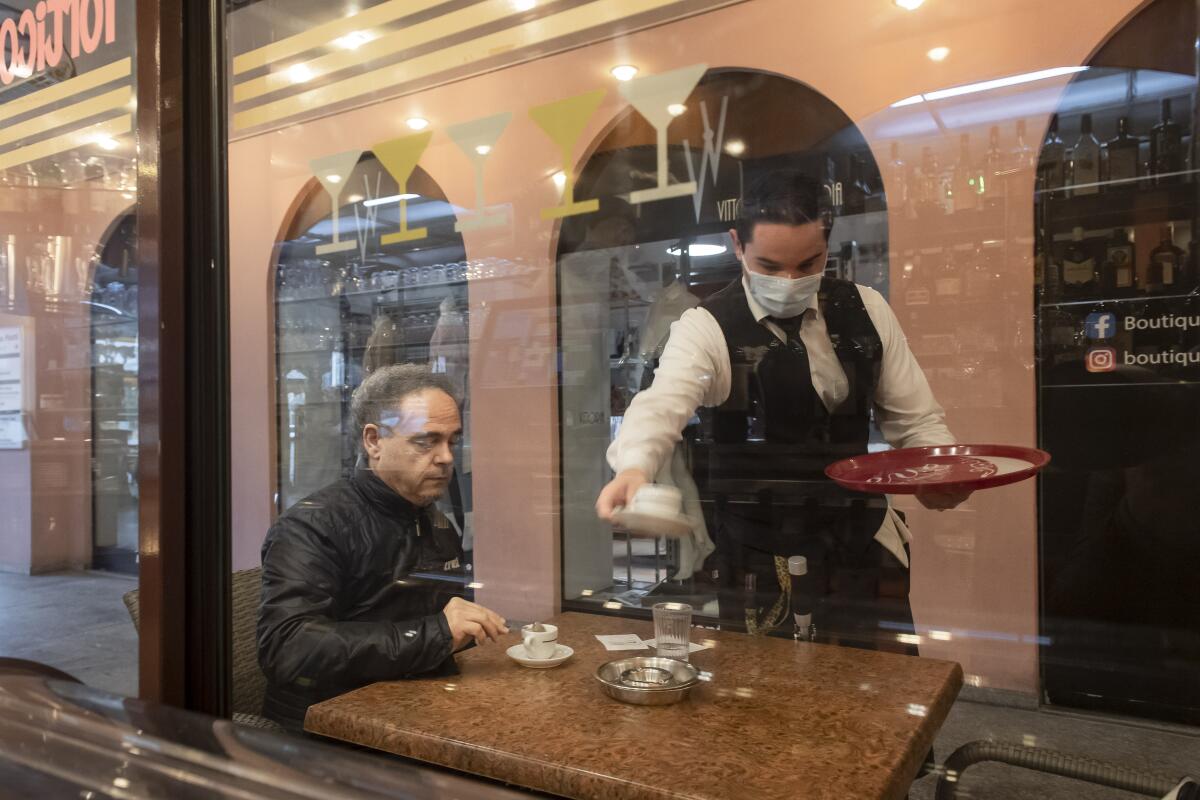
PARIS — Plastic spacing barriers and millions of masks appeared Monday on the streets of Europe’s newly reopened cities, as France and Belgium emerged from lockdowns, the Netherlands sent children back to school and Spain let people eat outdoors.
All faced the delicate balance of trying to restart their battered economies without causing a second wave of coronavirus infections.
Fears of infection spikes have been borne out over the past few days in Germany, where new clusters were linked to three slaughterhouses; in Wuhan, the Chinese city where the virus started; and in South Korea, where a single nightclub customer was linked to 85 new cases.
With Monday’s partial reopening, the French did not have to carry forms allowing them to leave their homes. Crowds formed at some metro stations in Paris, one of France’s viral hot spots, but the city’s notorious traffic jams were absent and only about half the stores on the famous Champs-Elysees were open.
Hairdressers in the city planned to charge a fee for the disposable protective gear they will have to give to customers. Walk-ins will be a thing of the past, said Brigitte L’Hoste, manager of the Hair de Beauté salon.
“The face of beauty will change, meaning clients won’t come here to relax. Clients will come because they need to,” said Aurelie Bollini, a beautician at the salon. “They will come and aim at getting the maximum done in the shortest time possible.”
The European Union is predicting a drop in economic output of more than 7% this year because of the impact of the coronavirus.
In Greece, Smaragda Petridou was out buying beauty products.
“Look, I’m not afraid to go in when the protection measures are being adhered to,” she said. “We’ll shop. What can we do? So the shops can survive, too.”
In Germany, gyms reopened in the country’s most populous state, but authorities there and in France have warned that a rise in the daily number of infections could lead to new restrictions. An emergency field hospital for COVID-19 patients has officially opened in Berlin on Monday on the site of the city’s convention center, though so far there are no patients.
Berlin’s top health official, Dilek Kalayci, said the clinic would serve as a “reserve hospital,” noting that the experience of Spain, Italy and New York had shown that even well-equipped medical systems could become overloaded in a pandemic.
In Spain, the hardest-hit country in continental Europe, roughly half of its 47 million people shifted into a softer version of the country’s strict confinement, beginning to socialize, shop in small stores and enjoy outdoor seating in restaurants and bars. Its biggest cities, Madrid and Barcelona, remained under lockdown as the country reported the lowest numbers of coronavirus-related deaths and infections since March 17.
Spanish hotels were allowed to open as long as they don’t let guests mix in public areas. But with people not allowed to travel outside their provinces and few flights from overseas, the prospects were bleak.
“Unfortunately this year’s business is lost already. It’s going to be catastrophic,” said Manuel Domínguez, manager at Seville’s Doña María Hotel.
Unemployment and coronavirus: How do European countries protect jobs?
Alfonso Polo, owner of four restaurants in a central square of the coastal city of Tarragona, Spain, opened 40 of his 90 outdoor seats. He said he expects to lose money for the next two or three weeks.
“At first it’s going to be very difficult, but we hope that slowly we’ll be able to recover. People are very eager to go out. That’s very clear,” he said,
In Belgium, Brussels’ City2 shopping mall reopened, and “everyone was impatient to open their shops, see their customers, so it is a relief despite the tremendous work they did to adapt their shops, to create paths with entries and exits for customers,” said manager Jurgen De Gelas.
Nearby, Omar Marrakchi bought a television.
“When I enter a shop, I thank every shop owner,” he said. “I thank them and I wish them good luck because we all have to be united, and just a small ‘thank you,’ a small ‘good luck,’ is not much, but if everybody does it and follows the rules, we should be all right.”
In Britain, Prime Minister Boris Johnson announced a modest easing of the country’s lockdown but urged citizens not to squander the progress made. “We will be driven not by mere hope or economic necessity,” he said Sunday. “We’re going to be driven by the science.”
He said that “anyone who can’t work from home — for instance, those in construction or manufacturing — should be actively encouraged to go to work.” He also set a goal of June 1 to begin reopening schools and shops if Britain can control new infections. Johnson himself is the only world leader to have suffered a serious bout of COVID-19.
The Sierra Nevada towns that dot Alpine County have no hospital. Nor do they have a single doctor’s office or clinic.
Critics said the advice was confusing, hard to follow and potentially dangerous — especially in a big city such as London, where most people do not own cars and where subways are operating at a fraction of their usual capacity. Others said that the shift in the government’s slogan in England from “Stay at Home” to “Stay Alert” was too vague. The regional governments in Scotland, Wales and Northern Ireland decided to stick with the old motto.
At London’s Waterloo train station, not everyone was convinced of the wisdom of easing the lockdown.
“I am nervous about going back, because I have a family and they have been isolating since the start. I feel like I am now putting them at risk,” said Peter Osu, 45, who was returning to work at a construction site.
Britain’s official coronavirus death toll stands at almost 32,000, the highest in Europe and the second-highest in the world after the United States. While the number of new deaths and infections is falling, Johnson said it would be “madness” to loosen restrictions so much that there is a second spike in coronavirus cases.
More to Read
Sign up for Essential California
The most important California stories and recommendations in your inbox every morning.
You may occasionally receive promotional content from the Los Angeles Times.
